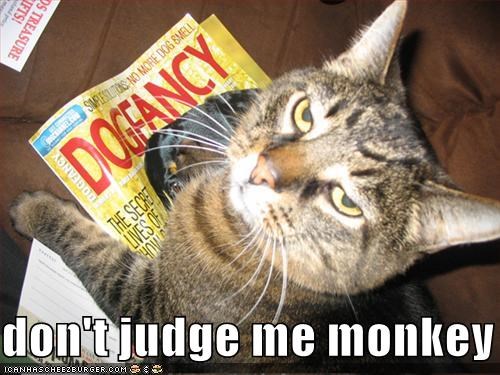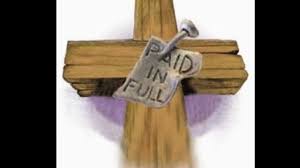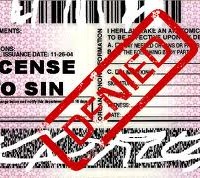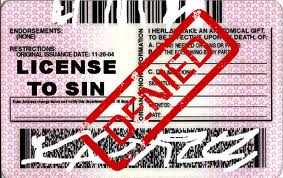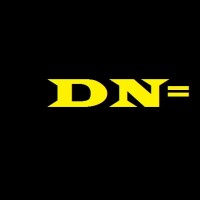I gain understanding from your instructions,
so I hate anything that leads people the wrong way.Your word is like a lamp that guides my steps,
a light that shows the path I should take.
In Part 6, we discussed the difference between exercising sound judgment and being judgmental. But how does this play out in the course of our daily lives? Maybe it would be best to illustrate with a story. (ALLEGORY ALERT!!!)
THE MAZE
You feel the panic start to rise in your throat as the door closes behind you. You hadn’t counted on the maze being pitch black. Of course, you might have known that if you had actually read the book, the book you carried into the maze with you, now useless in the darkness.
You slow your breathing and try to recall the directions you were given just moments ago. The shortcut. In your mind’s eye, you focus on his penetrating, bloodshot stare and force his words to echo in your brain again, the words that were carried to you on breath that smelled of spoiled meat and rotten eggs.
“Don’t bother with the book; there’s a better way,” he had said. He had appeared out of nowhere as you stood at the entrance, trembling with a mixture of nervousness and excitement. Before you had recovered enough from your surprise, and momentary revulsion at the smell, he had continued. “The shortcut. Take you right to the middle.” Where the prize waited. The greatest prize ever won.
You don’t know exactly what the prize is, because again, you never found the time to read the book. You had meant to, of course. Ever since the day you received it from your parents, the maze had been on your mind. The maze with the prize at the center. But life always seemed to get in the way, and the days got away from you one by one.
And now here you are in the dark, with the sound of your blood rushing in your ears, trying to drown out that sound with the memory of the foul-smelling man’s directions. “Fifty paces from the entrance, turn left.” You take a deep breath, let it out slowly, then begin.
With your left hand on the wall to guide you, you walk 50 steps. Sure enough, there is a corner. You turn left and continue. “150 paces, right, 75 paces, another right, and then another, then a left. . .” You repeat the man’s directions aloud over and over, trying to focus on where you are, and trying not to think about the pits. You weren’t sure if they actually existed, but you had heard stories. You absently think to yourself that if you had actually opened the book you might know if they were real or not. Doesn’t matter now, because. . .
Suddenly your left hand is grasping at air. The wall has ended on your left. You freeze. After just a moment, you realize you must be in some sort of chamber rather than a corridor. No problem, just keep walking straight ahead. Another 10 paces, 20, 30, still no wall on the left.
The fear begins. You wonder if you are still walking a straight line, or if you have drifted to the right. Are you still where you need to be, or in a different corridor entirely? In this darkness, you could be walking in a circle and not even know it. You freeze again, trying fruitlessly to get your bearings. Then a new horror dawns upon you—you have lost count of your steps.
The fear rapidly accelerates to blind panic. You start groping in all directions with both hands, trying to find a wall. Nothing. You are hopelessly lost. Now you can’t even remember if you were supposed to go 200 steps in this direction or 300. And which direction was that even? You have no idea which way you are facing in the darkness. On instinct, you open the book to try to find something, anything that might help, even as the small voice of reason under the torrent of panic in your mind tells you that it is pointless to try to read anything in this blackness.
But then, something amazing and totally unexpected happens.
The floor in front of you lights up. Just two steps in front of you, like a black, yawning mouth, you see the pit. Trembling, you look down at the book and see something even more astonishing on the page where you opened it:
You shouldn’t have listened to that guy back at the entrance. He’s never made it through the maze. Now turn around.
How can this be happening? You don’t have an answer for that, so instead, you turn to look behind you, and see that you are indeed in a large open space. Off to your right, you see dim light coming from a corridor. The floor is lit up there too. You walk to that corridor and proceed down the lighted path. After about 180 steps, it ends abruptly in another dark chamber. You stop. From the glow of the light behind you, you look at the book again, only now it simply says:
Are you going to stand there all day, or are you going to turn the page?
You turn the page, and immediately another corridor lights up to your right. You look around and notice that there were many paths to choose leading off this chamber. On the page, you see directions to walk down the lighted corridor to the T-intersection, and then turn right.
You begin down the corridor. This is the longest one yet. You can’t see the end, because the light on your path only extends about 100 feet in front of you. As you begin to wonder just how long this corridor is, you come to another, smaller chamber. From the dim glow of the path, you notice a sign on the wall. It says:
PROCEED DOWN THIS CORRIDOR TO THE T-INTERSECTION, THEN TURN LEFT!
You stop and look at the book again, thinking you must have read it wrong. But no, it definitely says to turn right at the T. So which is it? Left or right?
Now you have a decision to make. “OK, let’s be logical about this,” you say to yourself aloud. You reason that either way, you still have to go to the end of this corridor, so you take a deep breath, mutter, “Here goes nothing,” and step forward.
As soon as you have taken the first step, the entire corridor lights up, and you can see all the way down to the T at the end. Relieved, you sprint all the way to the end. But then you remember the problem—left or right?
You look to the right first—nothing but darkness. Then you look to the left. As soon as you do, bright overhead lights come on illuminating that entire passageway. Down at the end, you can just make out a flashing green arrow pointing to the left underneath flashing red neon letters that say, “THIS WAY!”
You look back to the right. Still just darkness. Then you remember something the man back at the entrance of the maze had said:
That book is so out of date it’s completely useless. It’ll have you wandering around in there lost until you starve to death. The people who wrote it are the ones who built the maze to begin with! Why would they want to share their prize with you? They just want to lead you around like a sheep and keep you away from what you rightfully deserve! People have been getting through the maze with my shortcut for years. If that book worked, EVERYONE would use it!
You look back to the left. Level ground, straight path, clear line of sight. The choice seems obvious. You decide to follow the sign and go to the left.
One step, then two, then three . . . nothing happens. Ten more steps. Still nothing. You glance behind you. Still dark going back that way. You continue forward, more quickly and confidently this time. Absolutely nothing changes. Then you reach the end where the arrow points to the left. You turn to face the direction where the arrow is pointing. And your jaw drops.
Because just 50 yards in front of you, you can see a large, well-lit chamber. And in the middle of that chamber is a pile of gold bricks as large as a haystack, shimmering in the light.
“I knew it!” you shout and tear off down this last corridor as fast as you can, the prize getting closer with every stride. Twenty yards away, now ten, now five, then SMACK!!!
You hit the clear glass wall at top speed, knocking out your front teeth, shattering your nose and rendering you unconscious.
You wake up a few moments later, battered and bleeding, and you see the book lying next to you where it landed when you fell, upside down and fanned out to the last page. You pick it up, and through a haze of throbbing pain, you read the words on the last page:
You should have turned right.
You feel the anger welling up inside you like a geyser, taking the place of the pain in your face. As you picture the authors of the book smirking at you, the anger quickly morphs into hatred.
“How DARE these self-righteous dirtbags tell me what I did wrong!” you shout, spraying blood droplets all over the corridor. In your rage, you throw the book against the wall, where it falls to the floor.
On the back cover, which you had never really looked at before, you see the publisher’s blurb in gold capital letters: “THROUGH THE MAZE, the newest masterpiece from the authors of BUILD A BETTER LIFE BY NOT WALKING INTO TREES!”
You remember that book, and all the people you thought needed a copy of it. As you become aware again of the pain of your busted face, you sense the irony of the situation, and your hatred and anger quickly subsides.
After a few minutes, when your nose has stopped bleeding and your breathing has returned to normal, you remember something else. When the book directed you down a dark path, it always lit up AFTER you took the first step. You walk over, pick the book up off the floor, and turn again to the last page. You start to wonder if maybe you should have turned right.
You walk back to the flashing sign with the arrow, turn right and look back the way you came to the T. It’s still dark down there at the end as before, but you decide to do what you must do.
You backtrack to where you had made the wrong turn, and step into the darkness. This time, you are not surprised when the floor in front of you lights up. You are not even fazed when the well-lit corridor from which you have just emerged is plunged into darkness.
You look ahead, and see that the corridor ends just a short distance away at a door. On the door is fastened a page written in the same lettering as the book you are carrying with you. It reads:
To be counted among the wise, you must learn to accept helpful criticism.
If you refuse to be corrected, you are only hurting yourself. Listen to criticism, and you will gain understanding.
Wisdom teaches you to respect the Lord. You must be humbled before you can be honored. (Proverbs 15:31-33 ERV)
And you finally realize that wisdom IS the prize. You open the door, exit the maze and breathe the fresh air outside. You hear a boisterous cheer and realize that a large crowd has gathered at the exit and are celebrating your victory. A nurse appears, leads you a short distance away, and begins tending to your busted face.
From where you are seated, you can see the entrance to the maze. You see two people talking near the entrance. One appears to be giving directions to the other. The second then walks toward the entrance with a mixture of fear and anticipation on his face. Then the other turns toward you . . . and you see that it’s HIM! The one who tried to sell you on the shortcut. He recognizes you and grins evilly.
Immediately, in your mind, you hear his sneering voice and all the hateful words he said about the book and its authors. Your anger starts to rise again, only this time instead of swelling into hatred, it solidifies into a sense of purpose.
You excuse yourself and run toward the other young man who is about to enter the maze. You catch him by the elbow, startling him, and hand him the book.
“Here,” you say. “You’ll need this.”
He scoffs in disgust and says, “I don’t need your stupid book! I’ve been training for this for years! I’ve been coached personally by the world’s leading experts on this maze!”
He’s pointing over your shoulder behind you, but you don’t even turn around, because you know at whom he is pointing. But he’s not done yet. With a deranged look in his eye and spittle flying from his lips, he goes on.
“Who do you people think you are walking around here trying to push your views down everybody’s throat? What kind of an ignorant fool would write a book like this anyway? And who in their right mind would publish it? Sure, everyone’s entitled to their own opinion, but the people who wrote this are clearly prejudiced idiots. They’re just trying to pass off their hatred and bigotry as concern for people trying to find their own way through the maze. That book is an embarrassment. It makes me want to vomit! It’s disgusting. But you know what? The writers have every right to expose themselves as total morons. Out here in the light of day, everybody can see what they really are. They have absolutely no regard for their fellow man! I’m just glad they’re in the minority and most people don’t think like they do!”
Then he folds his arms and smirks at you. You start to react, but then you catch yourself and remember, “You must be humbled before you can be honored.” Your anger subsides, and is replaced with compassion.
You offer him the book again, saying, “Please take it. This is what helped me get through the maze. If you don’t. . .”
But he cuts you off with a left-hand wave. Shaking his head condescendingly, he turns his back on you and walks again toward the entrance. Then he looks back over his shoulder and offers this parting shot:
“You people would be hilarious if you weren’t so pathetic. You trying to warn me with that book is about as scary as a kindergartner telling me I’m not getting any presents from Santa this year!”
Sadly, you realize that you have done all you can do, and you watch him enter the maze.
You return to where the nurse is waiting and say to her, “You might want to stick around. I think you’ll be having another customer directly.”
The moral(s) of the story:
1. WISDOM DN= PREJUDICE
2. MAJORITY OPINIONS DN= TRUTH
3. CORRECTION DN= HATRED
Don’t secretly hate any of your neighbors. But tell them openly what they have done wrong so that you will not be just as guilty of sin as they are. Forget about the wrong things people do to you. Don’t try to get even. Love your neighbor as yourself. I am the Lord. (Leviticus 19:17-18 ERV)
(More on this in Part 8—Hate Speech)

